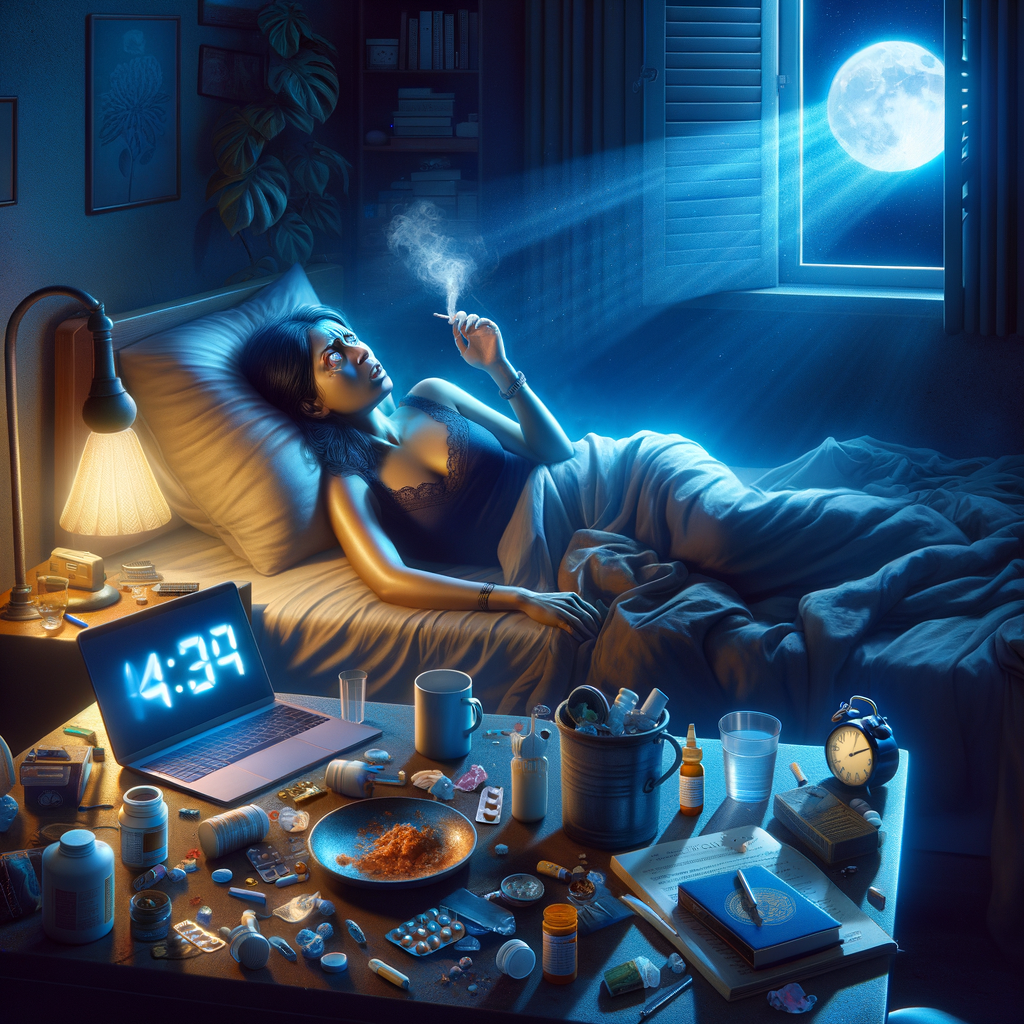
Sleep Tight, Train Right: The Insomnia Conundrum
Is counting sheep not doing the trick for you anymore? Welcome to the restless world of insomnia. Exercise, proper diet, and healthy habits are all vital components of a heathy lifestyle. However, quality sleep is essential to reap the benefits of these good practices. Lack of sleep is not only an enemy of productivity and relationships, but also a significant health hazard. Insomnia, a persistent difficulty with falling or staying asleep, can feel like a never-ending cycle of fatigue and frustration. So, if you find yourself still awake as the clock ticks past midnight, this valuable intel might just be your knight in shining pajamas.
The Defense Squad: Acute and Chronic Insomnia
First off, no two nights of poor sleep are the same! Insomnia can be broadly categorized into two types – acute and chronic. Acute insomnia is that dreaded yet ‘occasional’ enemy, caused usually by temporary stressors like jet lag or a looming work presentation. Chronic insomnia, on the other hand, sticks around for a longer haul, at least three months to be exact. It’s often time the result of medical conditions, the impact of certain medications, or psychological disturbances.
Why Sleep Matters: The 7 to 9 Hour Lifeline
The hustle culture may have glorified pulling all-nighters, but any couch potato can tell you that the couch is way cozier than dark circles. Our brains and bodies are like batteries – they crave that 7 to 9 hours of nightly snooze-time for optimal recharging. Shortchanging your sleep to below 6 hours regularly exposes your body to increased risks of depression, anxiety, heart disease, and a weakened immune system. Sleep-deprivation is certainly not a badge of honor to flaunt.
Modern Insomnia Culprits
What’s causing those sleepless nights? Stress, technology and bad sleeping habits are popular culprits. Blue light from screens messes with your melatonin production, causing a detonation in your sleep-wake cycle. Also, guzzling down caffeine-packed drinks or sporadic sleep schedules don’t take any prisoners in the sleep department. Accompanying these are certain medications, medical conditions, and unhealthy habits like excessive alcohol consumption and smoking that could be sabotaging your precious shut-eye time too.
Uncommon Causes of Insomnia
While the usual suspects are always looked at, few ever suspect hormonal changes, odd work schedules, genetics, and relationship issues to be culprits of insomnia. Even a warm, comforting shower before bed could backfire, as our body temperatures naturally need to drop for a restful sleep. Ever woke up with heartburn from that late-night spicy meal? Well, your spicy platter could potentially be a sleep-wrecker!
Combatting the Insomnia Wars
If your eyelids just refuse to feel heavy, it’s time to take matters into your hands. Try maintaining a sleep schedule, have a quiet reading or meditation routine before bed, limit caffeine and alcohol consumption. Your bedroom environment matters too! It should be your personal zen space, quiet, dark, and at a comfortable temperature. Heavy or spicy meals, opioids and some smoking cessation aids can impact your body’s insulin production leading to sugar crashes that wake you out of a deep sleep, avoid them if you can. Remember, a good night’s rest deserves more than a pillow fight!
Relaxation: The Secret Sleep Recipe
Here’s the secret ingredient in the insomnia battles: Relaxation. Daily stresses can easily trespass into your night, taking deep, cyclical breaths or visualising calming scenes can help boot anxiety out of your system. Try some mantras, light reading, white noise, calming music, gentle yoga, or even a simple word game to help your mind transition into sleep mode. Think of insomnia as a mini-boss in your personal health videogame; with the right tools and strategies, victory can be yours!
Tweaking Your Sleep Habits
Prioritising your sleep health can be a game-changer. Improve your sleep environment, prioritize comfort and foster good daily habits. Shoot for at least 30 minutes of exposure to natural light each day, exercise regularly (preferably 2 hours before bedtime), avoid caffeine (8 hours before bedtime) and heavy meals (2 hours before bedtime). One step at a time, your daily habits will align towards achieving quality sleep. Get this right, and you’ll be waking up to happier, productive days!
Insomnia FAQ Quickfire
- Insomnia and Mental Disorders: No, insomnia itself is not a mental disorder – it’s often a symptom of underlying conditions like anxiety or depression.
- Food and Insomnia: Yes, spicy, fatty or caffeinated foods close to bedtime can disrupt your sleep quality. Steer clear!
- Identifying Insomnia: Consistently irregular sleep patterns and waking up unrefreshed could be assaults from insomnia. Consult a healthcare professional to be sure, and beat insomnia at its game!
- Insomnia Medication: It’s not always necessary. Often, lifestyle tweaks and relaxation techniques could help. But in severe cases, a doctor may prescribe medication. Remember, professional advice is your best friend.
Now, the journey to better sleep may seem daunting, but remember, every small step counts. Tune into your body, identify patterns and triggers, and most importantly, seek help when you need it. Let’s reclaim your right to those sweet dreams and well-rested mornings. After all, there’s nothing like a good night’s sleep to lift those dumbbells or tick off that todo list with ease and grace! Sweet dreams, champ!
Source Citation: https://wealthofgeeks.com/why-cant-i-sleep/



